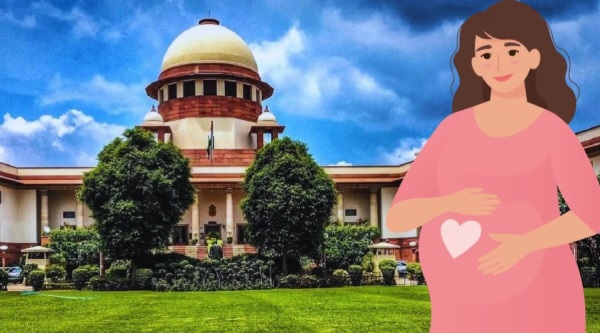(Prelims exam: Indian Polity)
(Mains exam, General Studies Paper-2: Structure, organisation and functions of the executive and the judiciary; government policies and interventions for development in various sectors and issues arising out of their design and implementation) |
Reference
The Supreme Court struck down the Tamil Nadu government's policy limiting maternity benefits to two children and ordered a government teacher to be granted maternity leave for her third child.

Maternity Leave and Reproductive Rights
Recent Case
- A teacher in Tamil Nadu had given birth to two children from her first husband and joined government service in 2012. She sought maternity leave for her third child in 2021 after remarriage, which was rejected.
- The Tamil Nadu government said maternity benefits are available only for 'two living children' making her ineligible for the benefit.
Judicial process
- Madras High Court: A single bench granted the leave but the division bench rejected it, not considering maternity leave as a fundamental right.
- Supreme Court: Cancelled the order of the High Court and directed to grant leave to the teacher.
- The Supreme Court said that maternity leave is an essential part of maternity benefits and it should be recognized as a reproductive right of women.
- The court also said that reproductive rights are now part of many areas of international human rights law, such as the right to health, the right to equality and the right to dignity.
Tamil Nadu government's stance
- Policy: Maternity benefit limited to two children and giving benefit for the third child violates the policy.
- Argument: Expansion of maternity benefit will put a burden on the exchequer, impact on administrative efficiency and violation of population control policy.
Supreme Court's decision
Decision
- The teacher is entitled to maternity leave under Tamil Nadu's FR 101(a) rule.
- Directs Tamil Nadu government to provide maternity benefits within two months.
Rationale
- The third child was the teacher’s first child after joining government service.
- Need for coherence in population control and maternity benefit policies.
Reproductive rights
- Reproductive rights are linked to rights to health, privacy, equality and dignity.
- Maternity benefits are considered part of human rights.
Way forward
- Need to align maternity benefit policies with reproductive rights.
- States need to adopt flexibility in maternity leave policies.
- Need for awareness to promote gender equality in the workplace.
Conclusion
The Supreme Court’s decision establishes maternity leave as part of reproductive and human rights. It challenges Tamil Nadu’s formal two-child policy and calls for a broader approach to maternity benefits. India should focus on policy reforms to make maternity benefit policies more inclusive.



